A look at the incredible life of one of the first female Labour MPs Ellen Wilkinson, featuring items from People’s History Museum’s (PHM) collection with PHM’s Visitor Experience Supervisor Sara Ferri. October 2024 marks the centenary of Ellen Wilkinson MP taking office.
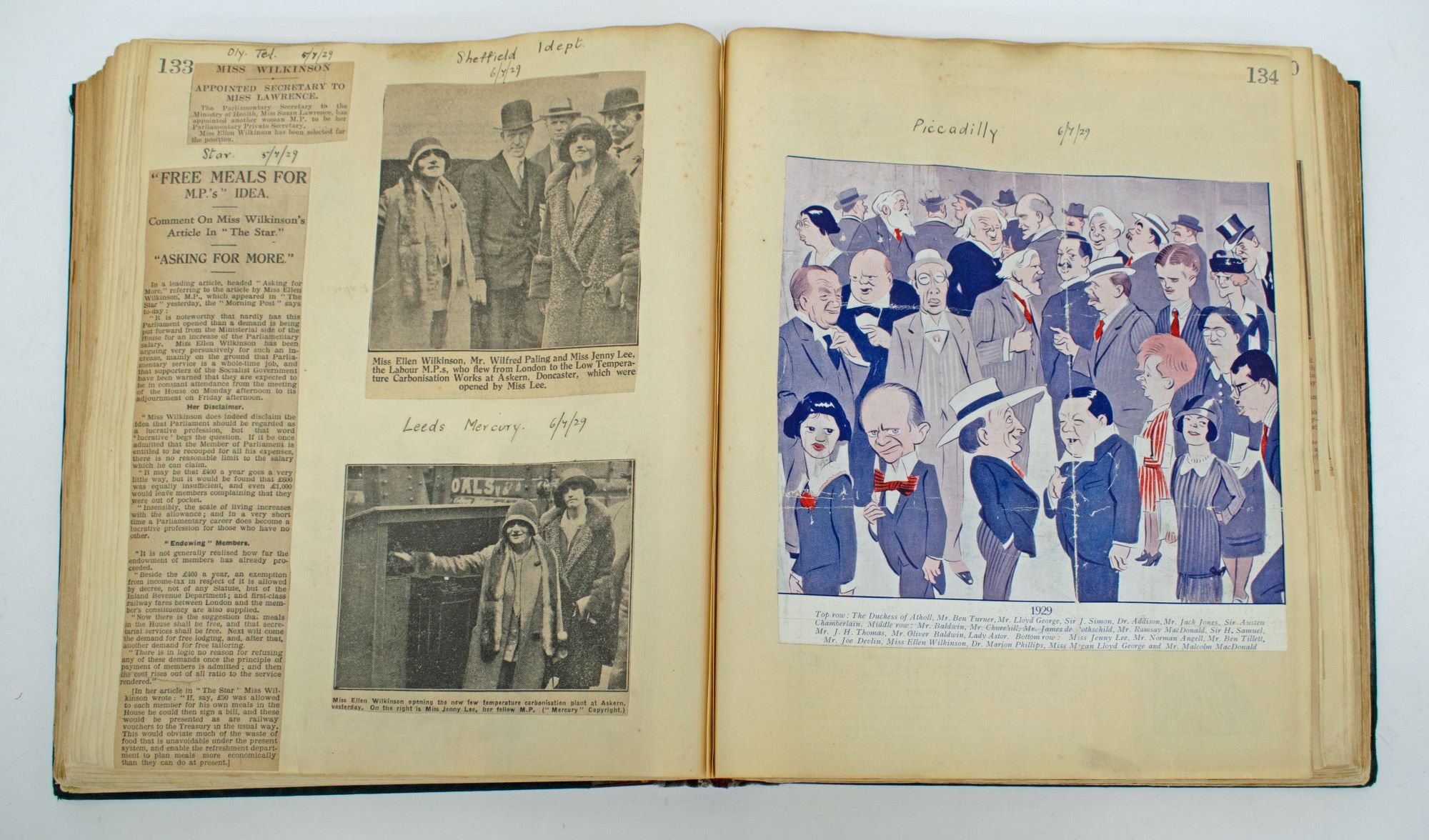
Ellen Cicely Wilkinson (1891-1947) was born in Manchester. She was a British Labour Party politician, journalist, writer, trade unionist, and one of the first women to become a Labour MP. She followed Margaret Bondfield, Susan Lawrence and Dorothy Jewson who had been elected at the previous election in December 1923. She served as MP for Middlesbrough East (1924-1929) and later for Jarrow (1935-1947), and then as Minister for Education in the Labour postwar government.
Ellen Wilkinson is known for her activism for various social causes. She was a strong advocate for social justice, women’s rights, workers’ rights, and education reform. She was also a prominent Labour Party member and devoted herself to the cause of socialism from an early age. She became known for the important role she played in both the General Strike and the Jarrow Crusade.
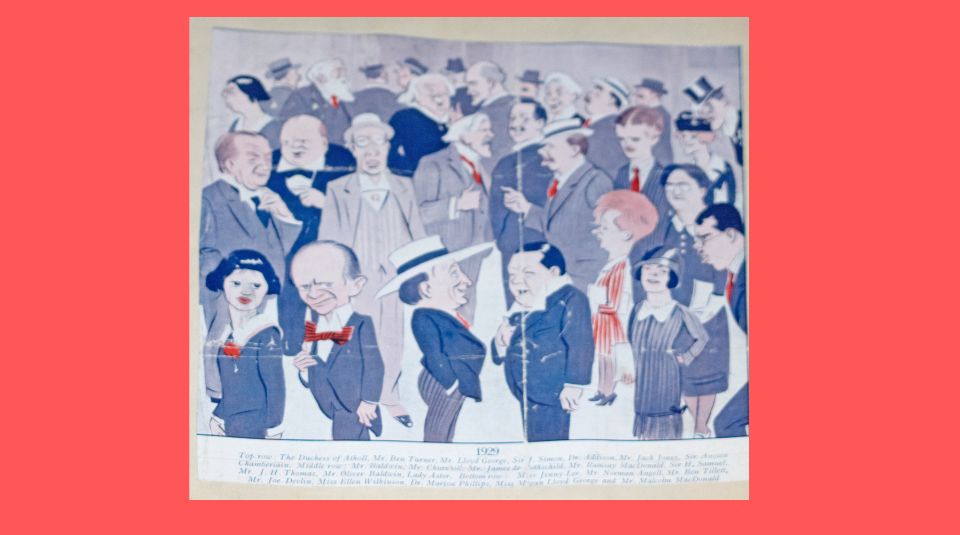
Ellen Wilkinson was also known by the nickname of ‘Red Ellen’ for the colour of her hair and her commitment to socialist ideas. These features became, together with her bright clothes and her firm manners, her hallmark, forming quite a contrast with her tiny frame.
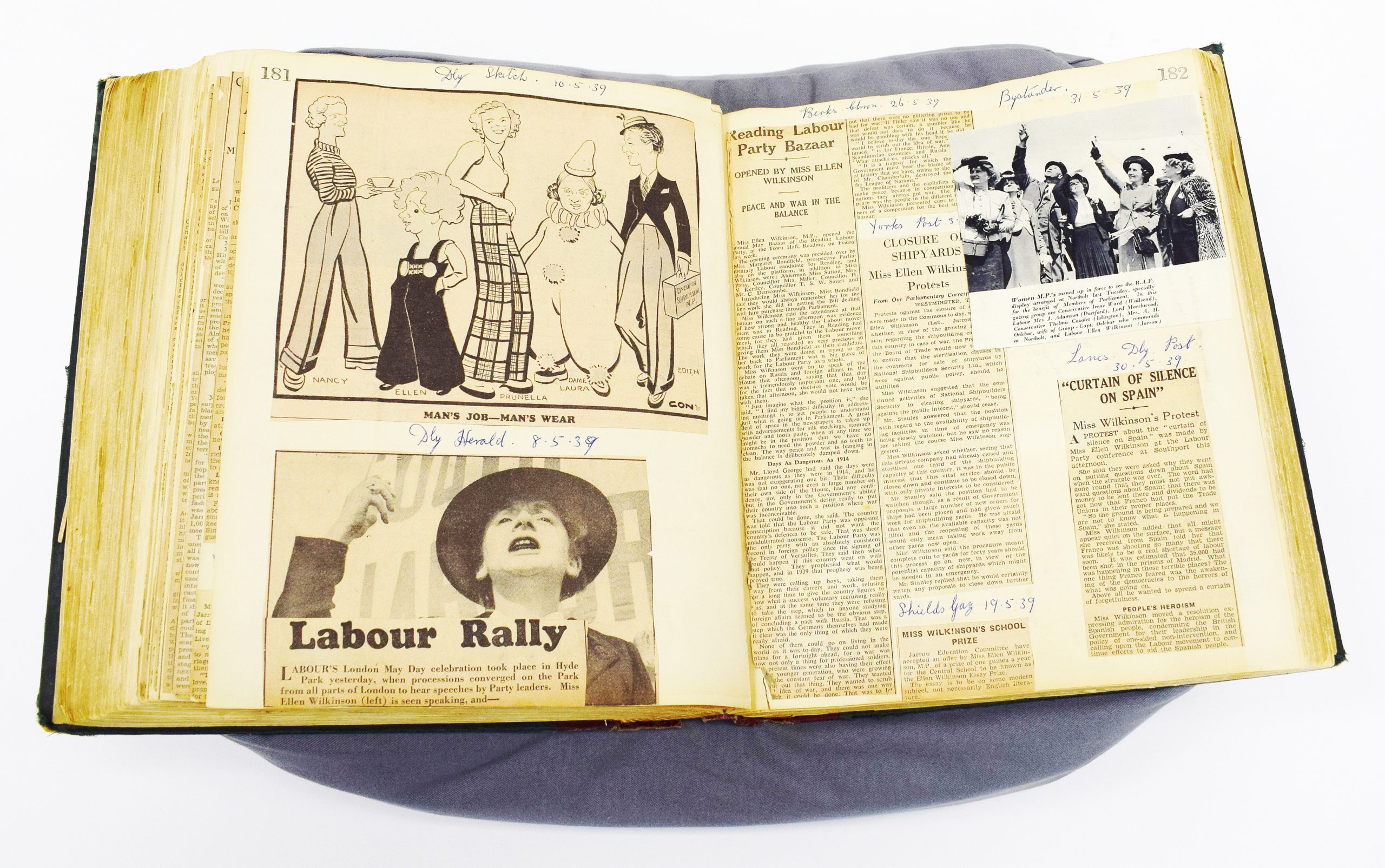
Ellen Wilkinson was strongly committed to socialism and social justice. Ellen’s beliefs were shaped by a strict Methodist and educational background. Ellen’s parents were both methodists and her father encouraged her to read widely, at the same time ensuring that she received appropriate education. Throughout her whole life, she advocated for workers’ rights, equal opportunities for women, and accessible education for everyone.
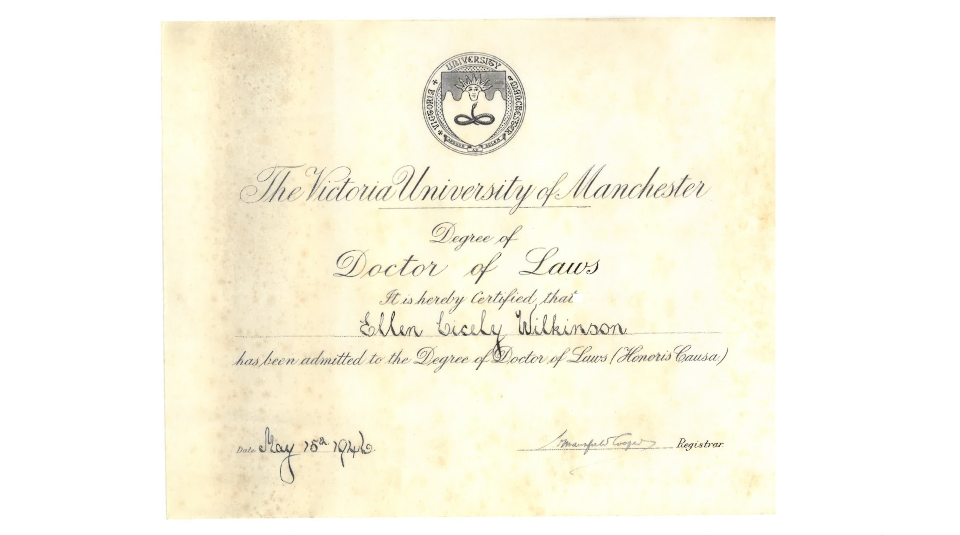
What determined Ellen Wilkinson’s involvement in politics was a combination of personal experience and education. Her working class background made her realise the harsh working conditions industrial workers faced, while her education exposed her to socialist ideas and political activism from a young age.
At the age of 24 Ellen became a trade unionist. Working as a union organiser and her involvement in local politics gave her the opportunity to become known within the socialist movement and stand as a Labour candidate in several elections. She entered politics through local government as a councillor and in 1924 she became the MP for Middlesbrough East.
The Jarrow March of 5 to 31 October 1936, also known as the Jarrow Crusade, was a protest organised by the Jarrow borough council, where 200 men marched from the town of Jarrow, in north east England, to London. The march was a protest against the severe economic depression and high unemployment suffered by the people of Jarrow. It formed part of the more general framework of the ‘hunger marches’ that had been taking place since the early 1920s, but it was free of political connotation.
Ellen Wilkinson played a crucial role in the Jarrow Crusade, helping organise and leading the march. As the MP for Jarrow, she brought attention to the plight of Jarrow’s residents and used her influence and connections to gather attention and support for the march. Once the march reached London, she presented the petition to parliament and delivered a passionate speech in the House of Common, calling for an immediate intervention to support the hardship faced by Jarrow inhabitants.
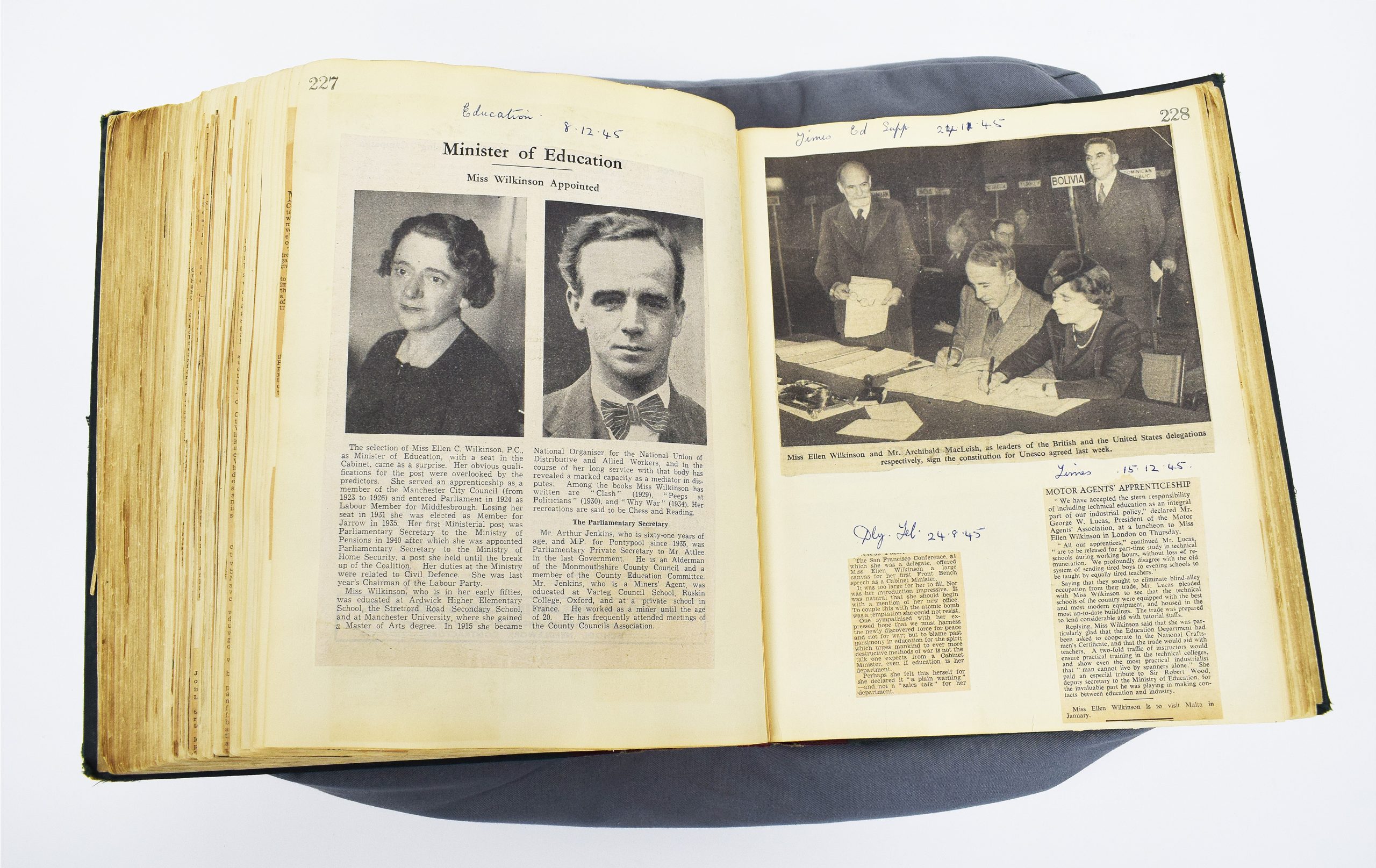
Ellen Wilkinson’s full support of the 1926 General Strike was a natural consequence of her being involved with the trade union movement from an early stage. During the nine days of the strike, she actively campaigned and toured the country, addressing several mass meetings in support of it. She also wrote a novel (‘Clash’) and a short book based on her personal experience of the strike, as well as several articles. She truly believed that the strike could constitute a step towards better working conditions and economic equality. This is why the decision of the TUC to eventually call off the strike was met with a mixture of shock and disbelief. Nonetheless, she believed that the strike would be “the dress rehearsal of next time”(1) and she supported the miners, who continued their dispute until they were eventually forced back to work or unemployment.
(1) Matt Perry., “‘Red Ellen’ Wilkinson: Her ideas, movements and world.” Manchester University Press, 2015.
Ellen Wilkinson became Minister of Education in the post Second World War Clement Attlee government. She raised the school leaving age to 15, established the Emergency Training College to train teachers – as raising the leaving age would have inevitably required more teachers, improved grants for further and higher education, introduced school meals and free milk, and she also contributed to the establishment of UNESCO.
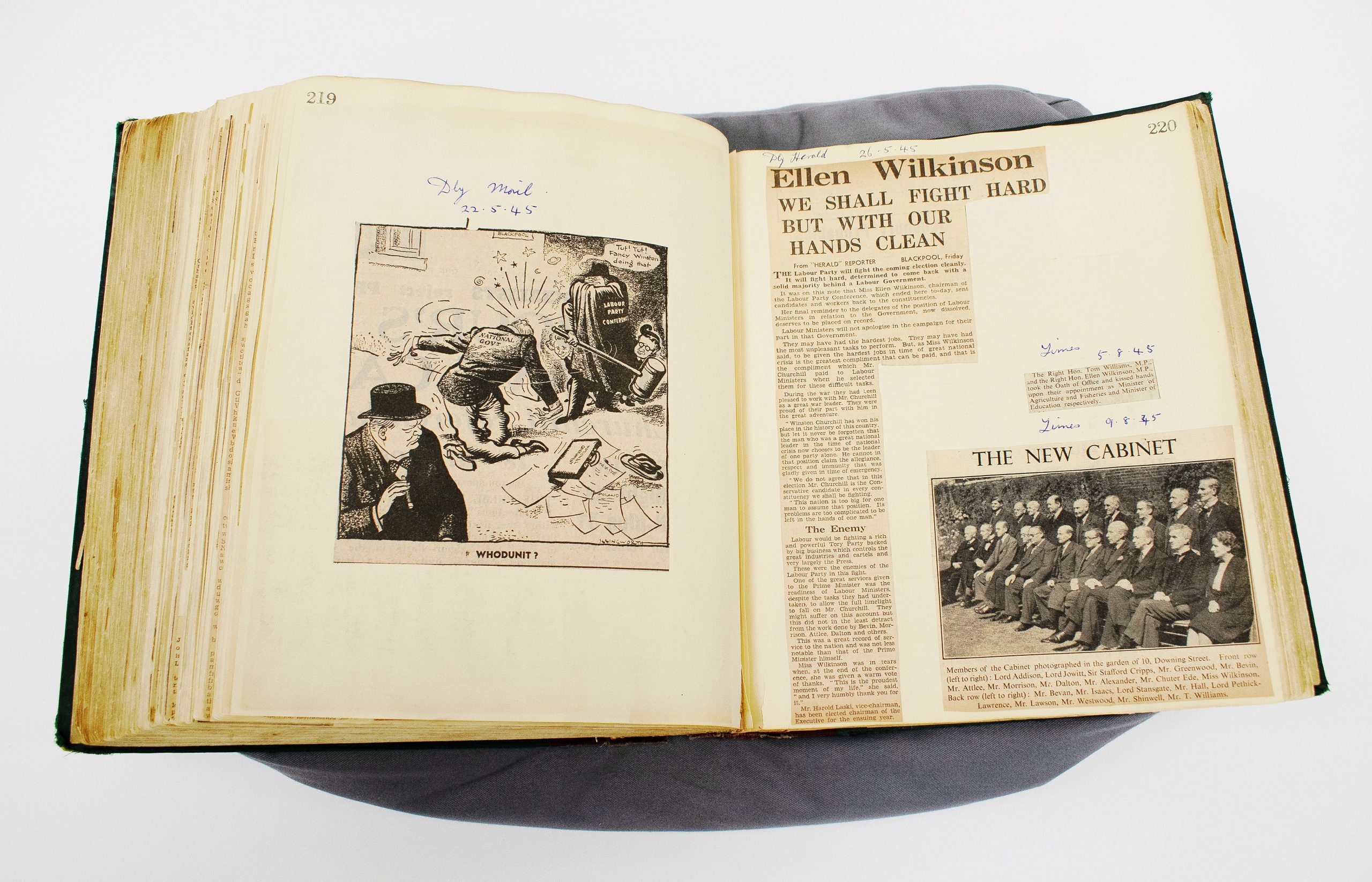
During her life, Ellen Wilkinson fought for many social causes. She was a tireless campaigner for the cause of women’s equal suffrage, raised awareness on the plight of Jarrow and its chronic unemployment and, as a Minister of Education, made her priority the raising of the school leaving age, fighting hard to achieve it in a relatively short time.
She is remembered for her incessant fights for social justice and for always standing on the side of the exploited, the voteless, and the most vulnerable groups of society.
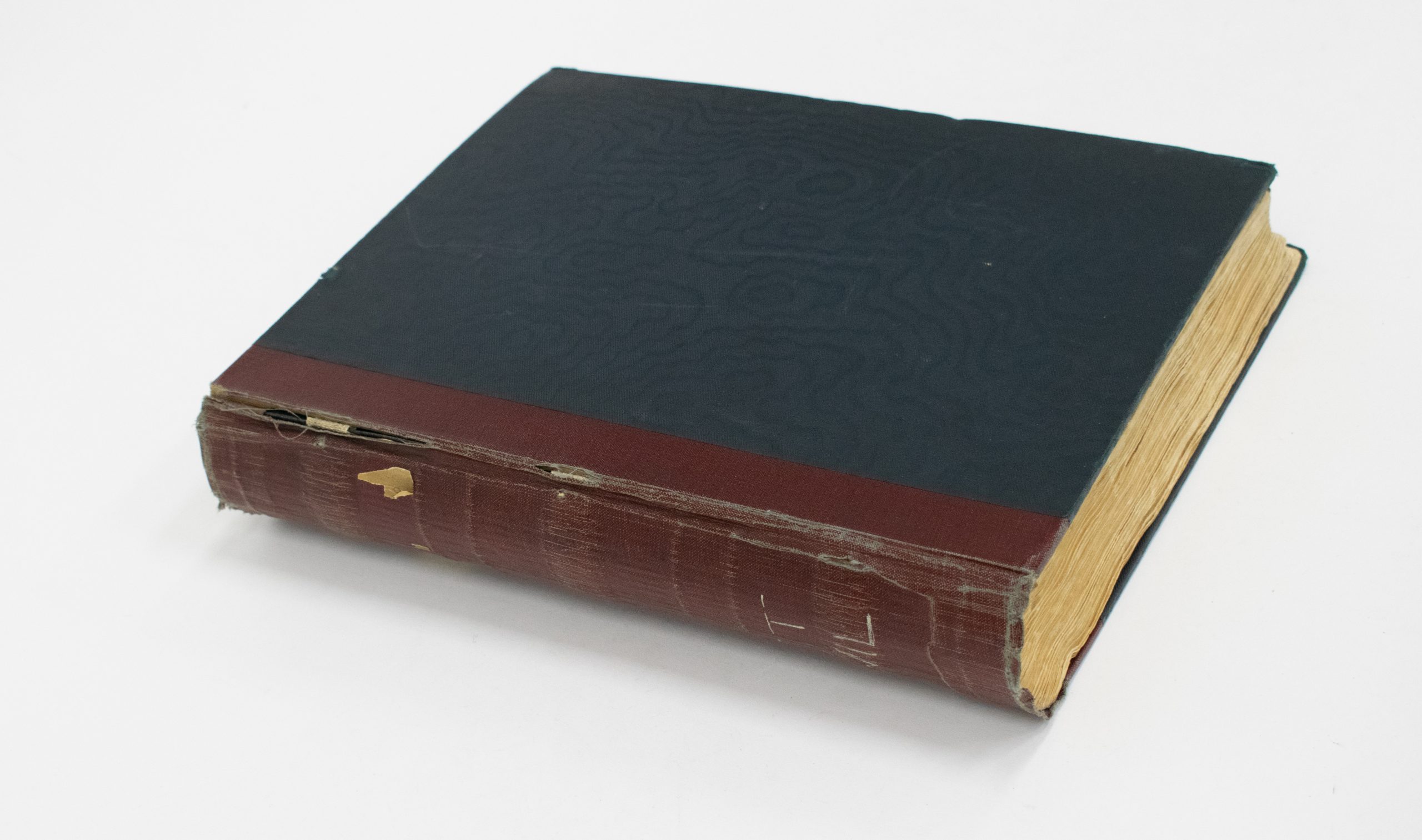
Visit Ellen’s scrapbook covering the period 1928 to 1930 on display in Gallery One.
Book an appointment to discover more of the collection with the Archive Team via archive@phm.org.uk.
Discover objects reflecting the stories and milestones of the last century of the Labour Party selected by the PHM team to mark the centenary of the first Labour government.
1891
Born as Ellen Cicely Wilkinson on 8 October in Chorlton-on-Medlock, a district of Manchester.
1906
Won a bursary for the Manchester Day Training College that enabled her to be trained as a teacher.
1907
Joined the Independent Labour Party (ILP).
1910
Awarded the Jones Open History Scholarship to The University of Manchester. During her university years, she joined the university branch of the Fabian Society, the Manchester Society for Women’s Suffrage, and the University Socialist Federation (USF).
1913
Became a paid worker for the National Union of Women’s Suffrage Societies (NUWSS).
1915
Took the role of national organiser for the Amalgamated Union of Co-operative Employees (AUCE), which became part of the National Union of Distributive and Allied Workers (NUDAW) in 1921.
1920
Was one of the founding members of the Communist Party of Great Britain (CPGB).
1923
Elected Labour councillor to Manchester City Council (until 1926).
1924
Elected to parliament as MP for Middlesbrough East; the only female Labour MP elected.
1927
Elected to the Labour Party’s National Executive.
1929
Re-elected in Middlesbrough at the general election. Published her first semi-autobiographical novel ‘Clash’.
1931
Lost her seat in Middlesbrough at the general election.
1932
Published her second novel ‘The Division Bell Mystery’.
1935
Elected MP for Jarrow, a seat she held until her death in 1947.
1936
Helped to organise and took part in the Jarrow Crusade. Set up the Spanish Medical Aid Committee and the National Joint Committee for Spanish Relief.
1939
Published ‘The Town that was Murdered’, an account of Jarrow and its plight.
1940
Became Parliamentary Secretary at the Ministry of Pensions in the Winston Churchill War Ministry. In October 1940 was appointed Joint Parliamentary Secretary in the Ministry of Home Security (1940-1945).
1945
Became Minister for Education in Clement Attlee’s government.
1947
Died at St Mary’s Hospital, Paddington, London.
An earlier version of this blog was first published in September 2024.